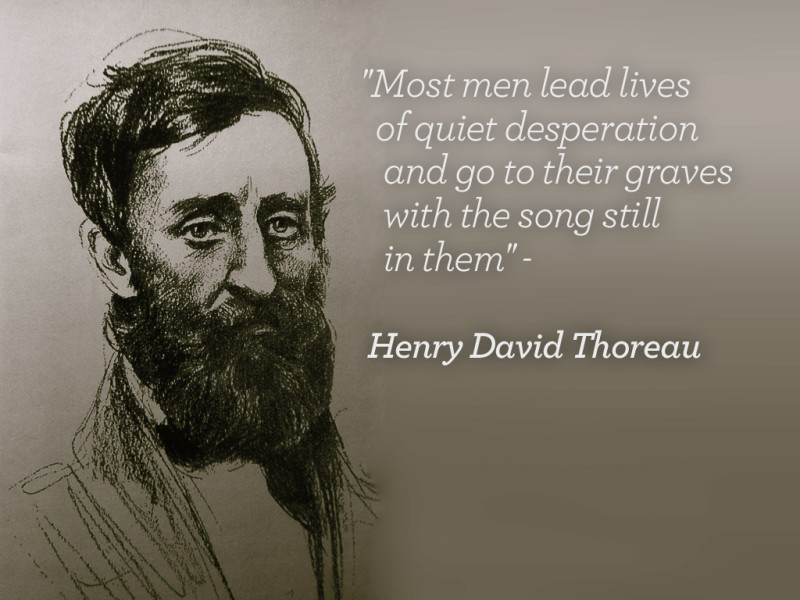

Individual conscience should rule instead, and civil government should confine itself to those matters suited to decision by majority rule. Majority rule is based on physical strength, not right and justice. Denying an interest in abolishing government, he states that he simply wants a better government. It exists for the sole purpose of ensuring individual freedom. Thoreau asserts that government as an institution hinders the accomplishment of the work for which it was created.

The Mexican War is an example of a few people using the government as their tool. It exists because the people have chosen it to execute their will, but it is susceptible to misuse.

Government is only an expedient - a means of attaining an end. Thoreau opens Civil Disobedience with the maxim "That government is best which governs least," and he speaks in favor of government that does not intrude upon men's lives. One of Thoreau's most influential writings, it has been published separately many times (Walter Harding's The Variorum Civil Disobedience, for example, appeared in 1967), included in volumes of selections from Thoreau (among them the 1937 Modern Library Edition of Walden and Other Writings of Henry David Thoreau, edited by Brooks Atkinson), and translated into European and Asian languages. "Civil Disobedience" was included in the Riverside Edition of 1894 (in Miscellanies, the tenth volume), in the Walden and Manuscript Editions of 1906 (in Cape Cod and Miscellanies, the fourth volume), and in the Princeton Edition (in Reform Papers, the third volume) in 1973. The essay formed part of Anti-Slavery and Reform Papers as edited by British Thoreau biographer Henry S. It was included (as "Civil Disobedience") in Thoreau's A Yankee in Canada, with Anti-Slavery and Reform Papers, published in Boston in 1866 by Ticknor and Fields, and reprinted many times. Having spent one night in jail in July of 1846 for refusal to pay his poll tax in protest against slavery and the Mexican War, Thoreau lectured before the Concord Lyceum in January of 1848 on the subject "On the Relation of the Individual to the State." The lecture was published under the title "Resistance to Civil Government" in Elizabeth Peabody's Aesthetic Papers, in May 1849. Thoreau's "A Week on the Concord and Merrimack Rivers".Selected Chronology of Thoreau's Writings.Emerson's "The Divinity School Address".Selective Chronology of Emerson's Writings.Forms of Expressing Transcendental Philosophy.


 0 kommentar(er)
0 kommentar(er)
